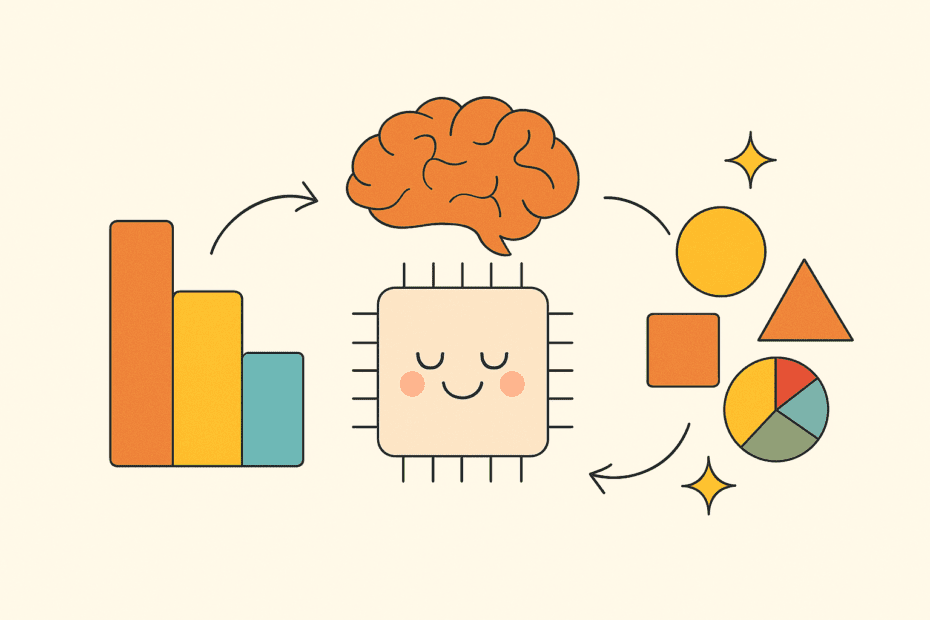Artificial intelligence has captivated industries and imaginations alike, promising to reshape how we work, learn, and interact with technology. From self-driving cars to sophisticated language models, the advancements seem almost boundless. But beneath the surface of architectural innovations like Transformers, a more fundamental shift is driving this progress: the power of scale, fueled by vast datasets and immense computing resources.
This insight comes from someone who has been at the forefront of this revolution. Jiquan Ngiam, a veteran of Google Brain and early leader at Coursera, and now founder of AI agent company, Lutra AI, offers a grounded perspective on the forces truly propelling AI forward. In a recent interview on the Startup Project podcast, he shared invaluable lessons gleaned from years of experience in the trenches of AI development. His key takeaway? While architectural ingenuity is crucial, it’s the often-underestimated elements of data and compute that are now the primary levers of progress.
The “AlexNet Moment”: A Lesson in Scale
To understand this perspective, it’s crucial to revisit a pivotal moment in deep learning history: AlexNet in 2012. As Jiquan explains, AlexNet wasn’t a radical architectural departure. Convolutional Neural Networks (CNNs), the foundation of AlexNet, had been around for decades. The breakthrough wasn’t a novel algorithm, but rather a bold scaling up of existing concepts.
“AlexNet took convolutional neural networks… and they just scaled it up,” Jiquan recounts. “They made the filters bigger, added more layers, used a lot more data, trained it for longer, and just made it bigger.” This brute-force approach, coupled with innovations in utilizing GPUs for parallel processing, shattered previous performance benchmarks in image classification. This “AlexNet moment” underscored a crucial lesson: sometimes, raw scale trumps algorithmic complexity.
This principle has echoed through subsequent AI advancements. Whether in image recognition or natural language processing, the pattern repeats. Architectures like ResNets and Transformers provided improvements, but their true power was unleashed when combined with exponentially larger datasets and ever-increasing computational power. The evolution of language models, from early Recurrent Neural Networks to the Transformer-based giants of today, vividly illustrates this point. The leap from GPT-2 to GPT-3 and beyond wasn’t solely about algorithmic tweaks; it was about orders of magnitude increases in model size, training data, and compute.
The Data Bottleneck and the Future of AI
However, this emphasis on scale also reveals a looming challenge: data scarcity. [Podcast Guest Name] raises a critical question about the sustainability of this exponential growth. “To scale it up more, you need not just more compute, you also need more data, and data is one that I think is going to be limiting us,” he cautions. The readily available datasets for language models, while vast, are finite and potentially becoming exhausted. Generating synthetic data offers a potential workaround, but its effectiveness remains limited by the quality of the models creating it.
This data bottleneck is particularly acute in emerging AI applications like robotics. Consider the quest for general-purpose robots capable of performing everyday tasks. As [Podcast Guest Name] points out, “there is no data of me folding clothes… continuously of different types, of different kinds, in different households.” Replicating human dexterity and adaptability in robots requires massive amounts of real-world, task-specific data, which is currently lacking.
This data challenge suggests a potential shift in AI development. While scaling up models will continue to be important, future breakthroughs may hinge on more efficient data utilization, innovative data generation techniques, and perhaps a renewed focus on algorithmic efficiency. [Podcast Guest Name] hints at this, noting, “incremental quality improvements are going to be harder moving forward… we might be at that curve where… the next incremental progress is harder and harder.”
Agentic AI: Extending Intelligence Beyond Code
Despite these challenges, [Podcast Guest Name] remains optimistic about the transformative potential of AI, particularly in the realm of “agentic AI.” His company, Lutra AI, is focused on building AI agents that can assist knowledge workers in their daily tasks, from research and data analysis to report generation and communication.
The vision is to create AI that is “natively integrated into the apps you use,” capable of understanding context, manipulating data within those applications, and automating complex workflows. This goes beyond code generation, aiming to empower users to delegate a wide range of knowledge-based tasks to intelligent assistants.
Navigating the Hype and Reality
As AI continues its rapid evolution, it’s crucial to maintain a balanced perspective, separating hype from reality. [Podcast Guest Name] offers a pragmatic view on the ongoing debate about Artificial General Intelligence (AGI). He suggests shifting the focus from abstract definitions of AGI to the more tangible question of “what set of tasks… can we start to delegate to the computer now?”
This practical approach emphasizes the immediate, real-world impact of AI. Whether it’s enhancing productivity through AI-powered coding tools like Cursor, or streamlining workflows with agentic AI assistants like Lutra AI, the benefits are already materializing. The future of AI, therefore, may be less about achieving a singular, human-level intelligence and more about continually expanding the scope of tasks that AI can effectively augment and automate, driven by the ongoing forces of data, compute, and human ingenuity. As we move forward, understanding and strategically leveraging these fundamental drivers will be key to unlocking AI’s full potential.

Nataraj is a Senior Product Manager at Microsoft Azure and the Author at Startup Project, featuring insights about building the next generation of enterprise technology products & businesses.
Listen to the latest insights from leaders building the next generation products on Spotify, Apple, Substack and YouTube.
